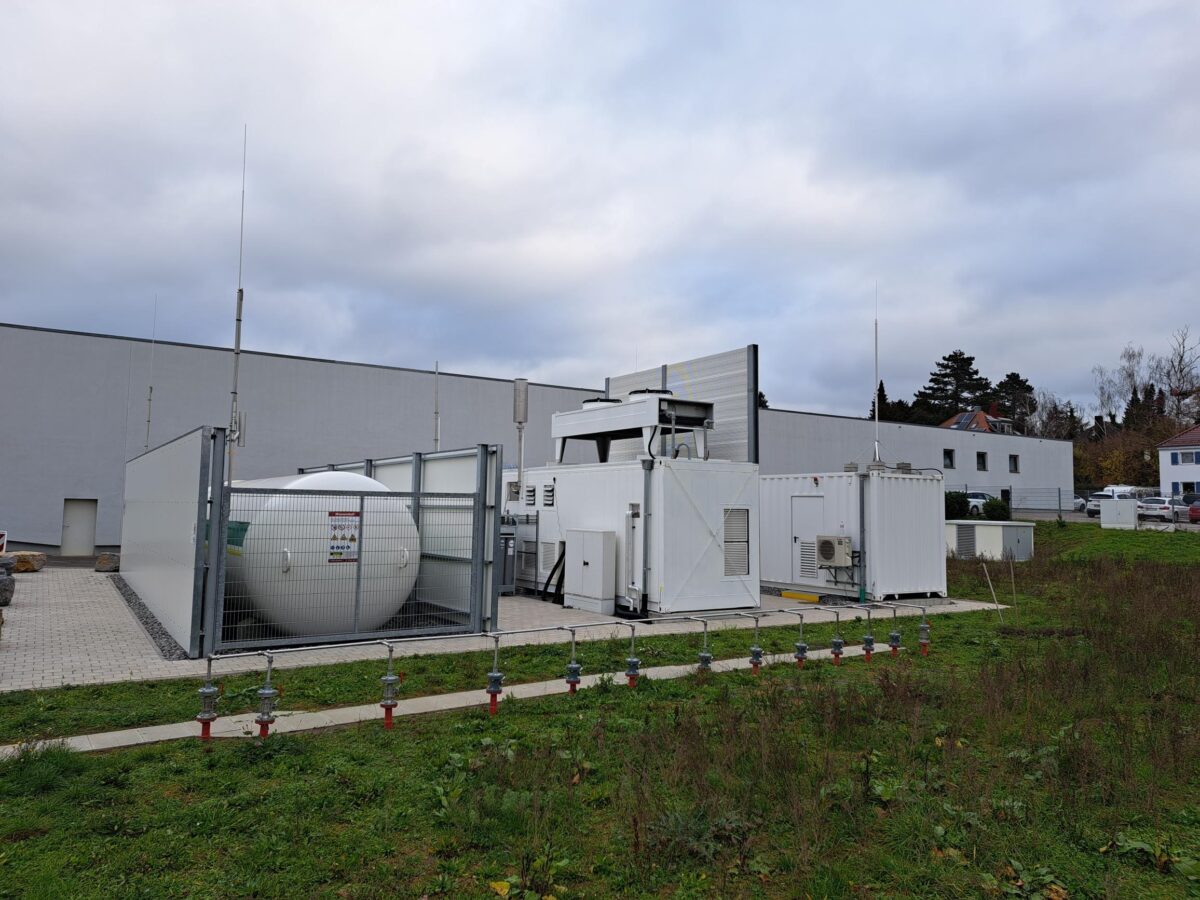German grid operator Netze BW, a unit of energy company EnBW Group, said it will increase the amount of hydrogen in its regional gas network in Oehringen, in the southwest of Germany, from 20% to 25%. “In three weeks, we will reach 30% of hydrogen in the local gas grid,” Heike Grüner, project leader, told pv magazine. Netze BW will keep a 30% hydrogen blend for some months to generate better data on home heating in detached family homes. “In the following phase of the project, we will introduce oscillations from 0 to 30% hydrogen. Volatile mixtures will simulate real-life volatility typical of energy systems with an increase in renewable energies.” Netze BW, which operates the distribution grid in large parts of Baden-Württemberg region, said that 100% hydrogen in the grid in the future would be possible. The company will share the data coming from the Oehringen “hydrogen island” with all the European grid operators to show that gas grids can be used in the clean energy transition. Netze BW started to use a hydrogen blend for the company's appliances in November 2021, introducing a hydrogen-gas blend for customers in 2022. Last year, the company also tested all the appliances in the Oehringen network with a blend of up to 35% hydrogen.
Toyota‘s new electrolysis equipment using the fuel cell stack and other technology from the Mirai vehicle will be put into operation this March at a Denso Fukushima Corporation plant. “It will serve as a technology implementation venue to promote its widespread use going forward,” said the Japanese car manufacturer. Toyota added it would accelerate its efforts to build a model for the local consumption of locally produced hydrogen, using electrolysis equipment to produce clean hydrogen and combust it in one of the plant's gas furnaces.
The Climate Change Committee said that hydrogen is related to three of the ten priorities to deliver a reliable decarbonized power system in the UK. The UK's independent adviser on tackling climate change underlined that the government should identify priority hydrogen investments by 2024, finalize by the end of the year ad-hoc funding mechanisms to support the development of 10 GW of low-carbon hydrogen production, and fast-track the development of new business models for hydrogen transportation. The report sees a limited role of hydrogen in heating.
Popular content
Researchers at Australia's Monash University have isolated an enzyme that can convert minute concentrations of hydrogen in the atmosphere to produce a sustained electrical current, paving the way toward a future where devices are literally powered out of thin air. The research team, led by Rhys Grinter, Ashleigh Kropp, and Chris Greening from the Monash University Biomedicine Discovery Institute in Melbourne, isolated and analyzed the genetic code of an enzyme that enables a common soil bacteria to consume hydrogen and extract energy from it.
The Atlantic Council said that green hydrogen could spur development in Sub-Saharan Africa, especially in South Africa, Namibia, and Kenya. “Following the hydrogen valley model, the Southern Corridor Development Initiative is a partnership between the Namibian Green Hydrogen Council and the German firm Hyphen Hydrogen Energy. The project is expected to produce 300,000 tons of green hydrogen by 2030 from 5 GW to 6 GW of installed renewable energy capacity,” said the Atlantic Council. According to the report, the export potential depends on finding a solution to local energy poverty, inequities between nations, and energy networks within the region.
This content is protected by copyright and may not be reused. If you want to cooperate with us and would like to reuse some of our content, please contact: editors@pv-magazine.com.


2 comments
By submitting this form you agree to pv magazine using your data for the purposes of publishing your comment.
Your personal data will only be disclosed or otherwise transmitted to third parties for the purposes of spam filtering or if this is necessary for technical maintenance of the website. Any other transfer to third parties will not take place unless this is justified on the basis of applicable data protection regulations or if pv magazine is legally obliged to do so.
You may revoke this consent at any time with effect for the future, in which case your personal data will be deleted immediately. Otherwise, your data will be deleted if pv magazine has processed your request or the purpose of data storage is fulfilled.
Further information on data privacy can be found in our Data Protection Policy.